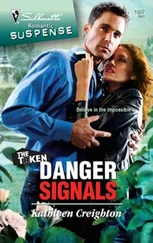Aymer looked towards the parlour window. It was slowly taking shape. His eyes were tired, but he could recognize the frosty truth — that Otto’s home was not in reach and never would be now. If he lived and had survived the snow, he could only be a ten-day walk away at most. He had his feet to carry him, and nothing more. Yes, Otto might be met again. Huzzah for that! He might be glimpsed. But it would only be on some English street. That was both a chilling and a strangely hopeful thought. It left the shadow of a chance that Aymer still could make amends. He concocted their encounter. He’d see Otto … where? In the market? Begging at the church door? Working in some warehouse by the marsh? Taking refuge in a stable room? He’d be transformed by his cold freedoms, that was a certainty. Much thinner, yes. His skin would be dry and dull and chapped. But there’d be something better than before. Something in his face, something in the angle of his eye, would be startling. Oh, what a meeting they would have, thought Aymer, his eyelids heavier than stone, the parlour window silver now with the first of Wednesday’s light, and with the last of Wherrytown. What have your travels taught you? he’d ask Otto. What have you learned away from home? What have you seen? But Otto would not say a word. He’d be joyful to have found a friend, of course, but far too weary to describe such cold, such bafflement, such heavy seas, such dislocating winds, such ships.
CITY AIR makes free? Well, yes. It was a liberation to be home again amongst the soft civilities of city life, and free from the embarrassments of Wherrytown. But Aymer Smith affected not to like the taste of city air that much. He was a travelled man now, amphibious between the country and the town. His blood was spiced with salt. He wasn’t an innocent any longer. He took to wearing his tarpaulin coat and his heavy boots at every opportunity, to the factory, to debating rooms, to the subscription libraries, in the streets. ‘Your brother has begun to look just like the pudding man,’ Fidia Smith complained to her husband, when she had spotted Aymer, hatless and ‘dressed for the fields’, window-shopping like a vagrant in King’s Avenue. ‘He’ll have a basket on his shoulders next, and will be selling plum pudding by the quarter yard.’
Privately Matthias didn’t agree with Fidia’s opinion that his brother was ‘affected, but not improved’ by the trip to Wherrytown. ‘His stay amongst the hobnails and the corduroys has been no benefit,’ she said. ‘If an ass goes travelling, he’ll not come back a horse. More’s the pity.’ On the contrary, Aymer had matured, Matthias thought, in everything except his dress. Yet to have him safely back was not entirely a relief. There’d been so little tension in the works while Aymer was away. Orders could be given and not questioned. Changes which were ‘not in the interests of Fraternity and Justice’ could be made without a pious argument. And men could be sacked. Indeed, Matthias had dismissed three of the hands who had, at Aymer’s instigation, set up a Works Committee, and one other man who had poor eyesight. There would be a fine commotion, Matthias had expected, when Aymer got back from his mischief-making along the coast. But unexpectedly his brother didn’t mention their dismissal. Perhaps he didn’t notice it. He made more fuss when consignments of almost pure sodium carbonate, méthode Leblanc, were delivered to the factory yard in jogging-carts. Though even then the fuss he made seemed dilettante and not, Matthias judged, without the spice of irony. Aymer claimed he missed the cumbrous wagonfuls of kelp ash: six horses and six thousand flies a load. He missed the smell. This, surely, was a tease.
‘Where is the beauty in it?’ Aymer asked, on his first encounter with the new soda. He fetched the ancient folio of seaweed specimens from what had been their father’s roll-top desk, and thumbed through the heavy pages with their browning fans of kelp and their Latin names in browning ink. Matthias could see no beauty there, though Aymer was extravagant in his appreciation of the weeds. ‘If only you could see these living kelps in water, Matthias. You would imagine you were at a royal ball amongst the finest ladies …’
‘And why would I imagine that? I cannot understand how I must confuse fine ladies with seaweed.’
‘You would understand if you could see the living kelp. It is quite beautiful, I promise it. But you will not persuade me that this new material has beauty in it.’
‘Its beauty, Aymer, will not be seen until our ledgers are complete, and then you will be able to admire it in the profits column,’ said Matthias. He felt quite well disposed towards his brother for a change. Aymer had lost his argumentative edge. He seemed less preacherly, and more resigned. He complained less of minor illnesses. And, best of all, he displayed a less dutiful interest in the factory. Some days he left at lunchtime, and didn’t return. On Saturdays he didn’t come at all. He seemed too preoccupied with private matters — the very thought of which made Fidia laugh — to bully for the shorter working day or profit-sharing schemes.
‘What private life?’ said Fidia.
‘His books, perhaps?’
‘Ah, yes, his dusty volumes. Pity them, Matthias. They have to tolerate the tedium of sitting open on his lap for hours long with only him for company and his bad breath for ventilation.’ Fidia laughed politely into her glove. She was relieved that it was only books that kept her brother-in-law preoccupied. She didn’t want a ‘private life’ that might secure a wife for him — or offspring, God forbid. She and Matthias had a son who would inherit the soap factory in its entirety if Aymer could only remain steadfast in his bachelorhood. The sooner he grew too old for parenting, or — better — contracted some ailment that was fatal rather than imagined, the happier Fidia would be.
IT WAS an afternoon in mid-January 1837 when Fidia had spotted Aymer in his tarpaulin and his boots outside the shops in King’s Avenue. Her brother-in-law had been standing with his shoulders up against a wall watching the military band which exercised along the avenue on Fridays. They’d marched past him twice already — first playing a hornpipe and then a doleful coronach — and Aymer had been marching with them like some schoolboy when he saw Fidia, hurrying fatly across the street ahead of him. He took his refuge up against the wall until she disappeared into the haberdashery. Neither of them knew that they’d been seen.
When the band assembled round the King’s Hall steps for the tattoo, Aymer went up to look more closely at the drummer’s face. He was an African; that much was clear from fifty yards away. And he was large; though hardly large enough to topple the Cradle Rock. Even when he got close, however, Aymer was not certain that he’d found his man. The nose was right, small and depressed. But his face was pulled out of shape by its chin strap, and the hair was hidden by the regimental cap. His drumming was indifferent, Aymer thought, though he didn’t count himself as musical. He stood through two more pieces and endured the posturings of their final marching display, which was unaccompanied except for Otto — was it Otto? — beating time.
The soldiers put down their instruments and drank from water flasks. The drummer was talking to the buglers. He was ten inches taller at the very least. Aymer circled them. He didn’t want to call out, or even seem to stare. He wasn’t even certain what to do if he recognized the man. As he got closer he could hear the drummer talk. It was more complicated than Uwip, Uwip , and pitched too high. Aymer grew more certain that, if he called out Otto’s name, the man would not turn round. At last he pulled off his regimental cap. His head was bald above the temples, and what hair there was was slightly gingered. ‘Otto,’ Aymer said, at half-power. One of the buglers looked at him and yawned.
Читать дальше












